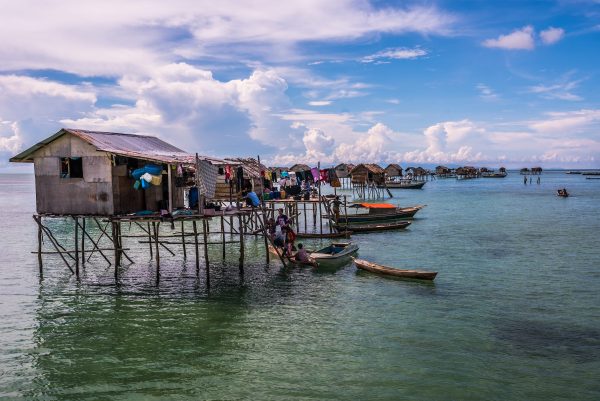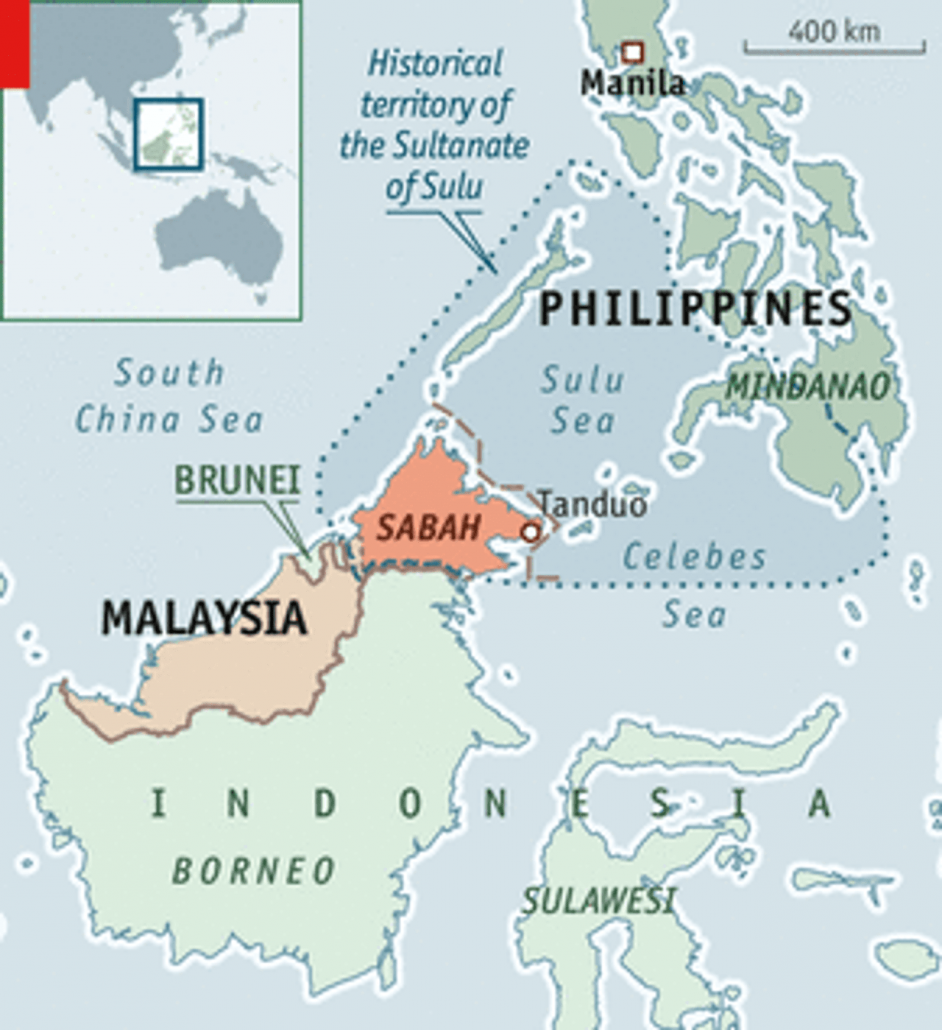Photo: Wikimedia Commons
Reposted from Peoples World
An eviction operation conducted by authorities in the Malaysian state of Sabah from June 4th to June 6 th has left hundreds of stateless Bajau Laut people homeless. Sabah’s Tourism, Culture and Environment Minister Christian Liew has rejected that the operation violated international human rights laws, despite claims to the contrary from human rights advocacy groups and Sabahan mutual aid organization Borneo Komrad. Liew went on to claim egregiously that some Bajau Laut residents razed their own homes “for the purpose of going viral on social media and garnering sympathy and attention from netizens.”

Sabahan authorities cite issues of border security, along with illegal fishing and construction of permanent structures within the Tun Sakaran Marine Park off the coast of the Sabahan city of Semporna, a popular tourist destination. Forced eviction and displacement of indigenous peoples is not new in the context of historical scientific conservation.
The Bajau Laut are a semi-nomadic people of the Sama-Bajau group who have historically
lived throughout the central and eastern Malay Archipelago and Sulu Archipelago of the
modern-day Philippines. Today, although some can claim citizenship of Malaysia, the
Philippines, Brunei, or Indonesia, many Sama-Bajau are effectively stateless, living in stilted
houses and houseboats built in shallow shoreline waters at the margins of these four
countries.
The issue of statelessness in Malaysia is made more difficult by Malaysian race laws.
Ketuanan Melayu, a concept of ‘Malay Supremacy’, was cultivated as a legal framework by the British administration of Malaya which has since translated into Malay ethnic control of the federated former British colonies that now constitute Malaysia. Ketuanan Melayu at the federal level, and various interpretations of Bumiputra—a context-dependent legal concept of peoples considered indigenous to Malaysia such as Malays, the indigenous Orang Asli of peninsular Malaysia, and Dayak and other indigenous Borneans—discriminate against
Chinese, Indian, and other Malaysians who aren’t defined as Bumiputra. Affirmative action programs of peoples considered Bumiputra have historically been aimed predominantly at
ethnic Malays, and in some states such as Sarawak, children born to only one Dayak parent have only recently begun to have access to such programs.

For those not traditionally seen to be natives to this or that Malaysian state, like foreign-born Bajau Laut, access to healthcare, schooling, and other basic social services remain out of reach. Organizations such as Iskul Sama diLaut Omadal and Borneo Komrad’s Sekolah Alternatif have become the source of some of the only social services available to the Bajau Laut, who are commonly treated as social pariahs.
Over the past few centuries, the dissolution of regional sultanates and the succession of
Anglo-European colonial administrations has placed the Bajau Laut in the path of territorial
disputes between the Philippines and Malaysia. Philippine claims on eastern parts of the Malaysian state of Sabah stem from the Sulu Sultanate’s leasing of the region to the British North Borneo Company in the 19th century. Malaysia’s formation in 1963 from the former British colonies of Malaya, Singapore, Sarawak, and North Borneo (Sabah) included this region. As the territory was never formally ceded to Malaysia, Philippine dictator Ferdinand Marcos claimed it still rightfully belonged to the Philippines. A failed Philippine attempt in 1967 to instigate political upheaval in Sabah, among other historical grievances, spurred insurgencies throughout the state of Mindanao. Most notable among these are the independence movements of the Moro who had resisted earlier occupation by the United
States and Spain as well as others carried out by the Communist Party of the Philippines and its offshoots in opposition to Marcos’ government.

In recent years, though, Sabahan territorial disputes have become the purview of emergent jihadist movements in Muslim- majority Mindanao associated with Islamic State. Abu Sayyaf has employed tactics of piracy and kidnapping throughout the Sulu Archipelago and into Sabah, including against the Bajau Laut. Caught in the crossfire, Bajau Laut have largely dispersed from the Sulu region in recent decades and relocated along the coast of Sabah, North Kalimantan, and other parts of the Philippines. As Malaysian anti-racism organization Pusat Komas said of the current predicament of stateless Bajau Laut in Sabah, “Moving people out of their homes only serves to move the problem elsewhere, rather than solving it.”
Eric Brown is a PhD student in the University of Maine’s Ecology and Environmental Sciences program studying the adaptive thermoregulatory physiology and energetics of small mammals in Sarawak, Borneo. As a UAW organizer, Eric guided a successful initiative that culminated in the creation and recognition of the UMaine Graduate Workers Union.
